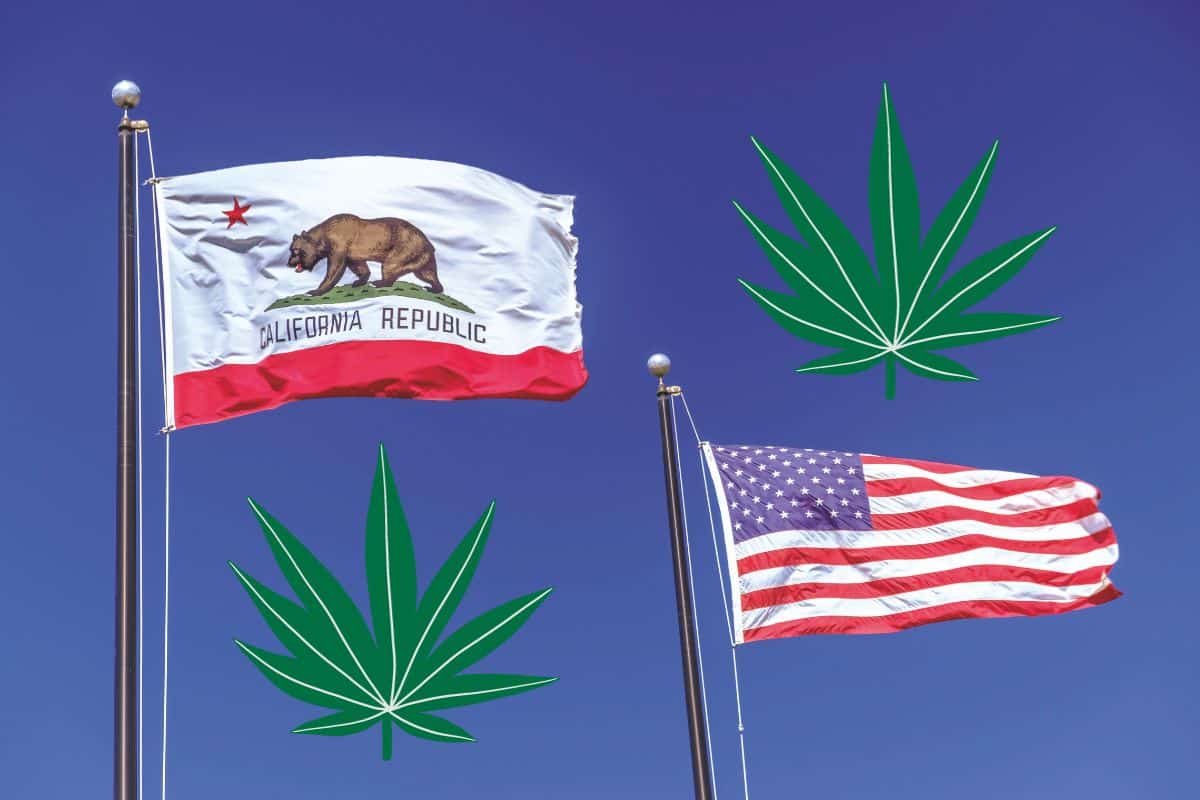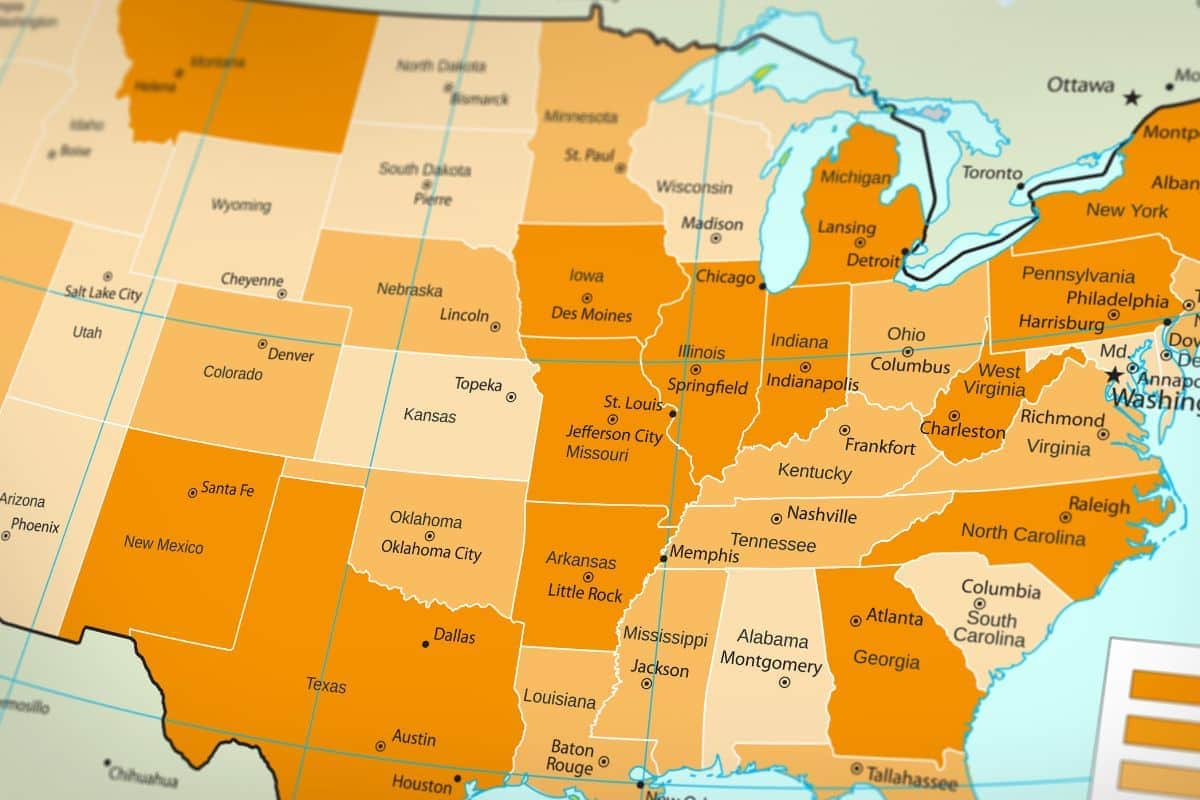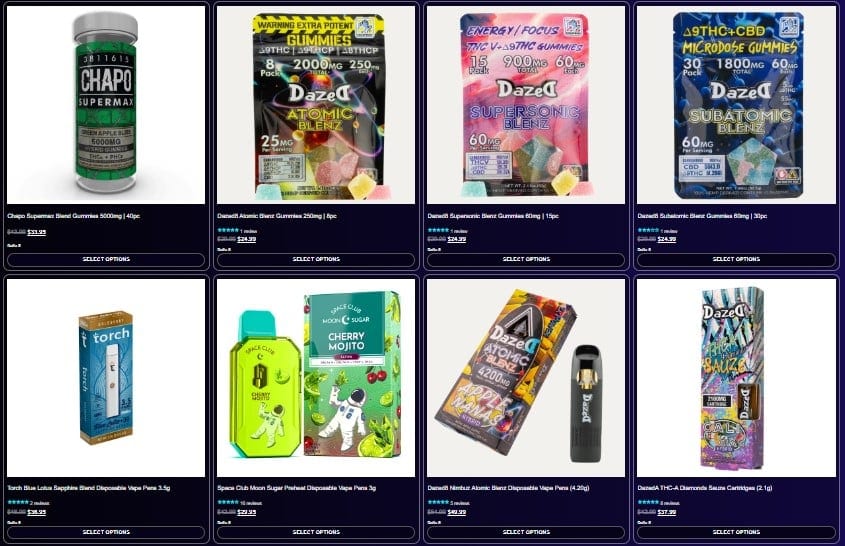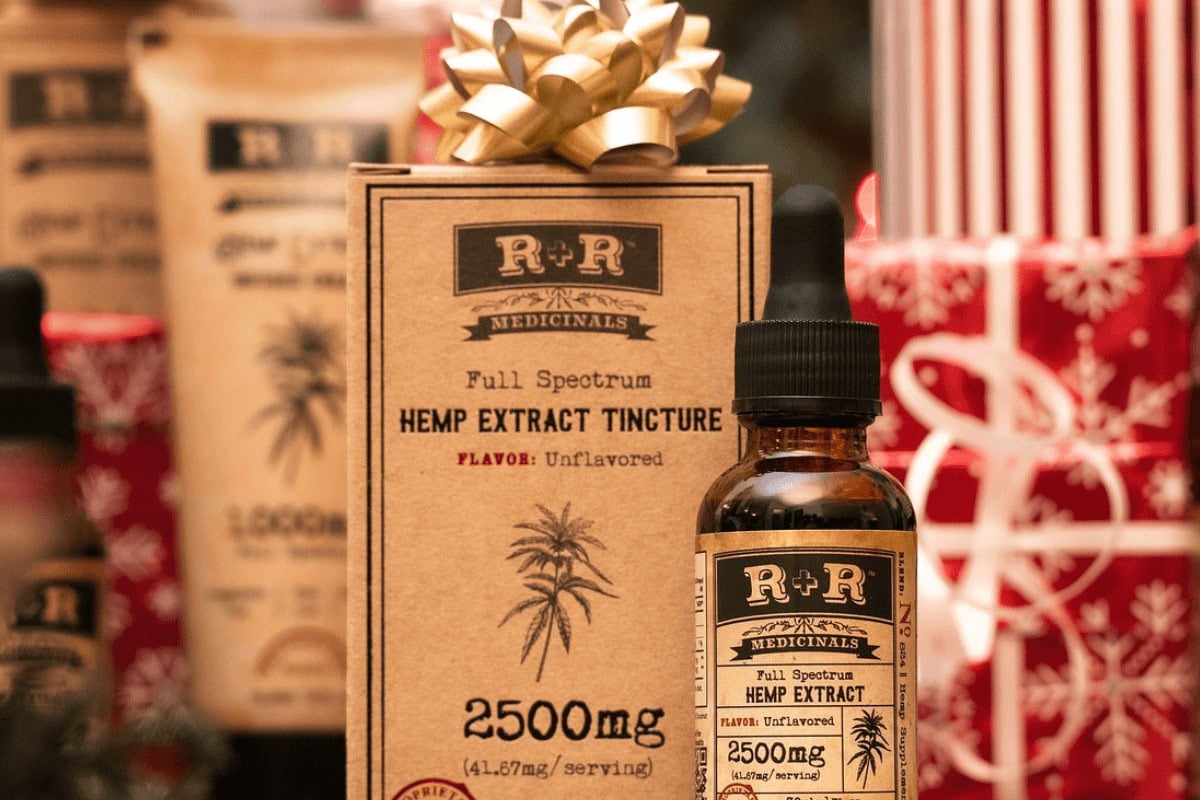Is Delta 9 Legal in California? A Comprehensive Overview
Delta-9-tetrahydrocannabinol, simply called Delta-9-THC, is the magic element in weed that sends you to cloud nine. The green light to have, hold, or pass it around swings wildly based on your zip code since the playbook changes by region. For those with a knack for understanding the legal dance around this trippy compound, California’s rules on Delta-9-THC are worth a gander. Plunging into the Californian rules offers a clear pic of what’s in the clear and what’ll land you in hot water with this buzz-inducing substance. Hang tight, and you’ll see why getting the lowdown on Delta-9 in the Golden State sticks as top-priority info.
In recent years, California has adopted a progressive stance on cannabis-related legislation. In 1996, the state approved the Compassionate Use Act, which allowed the medicinal use of marijuana for patients with certain medical conditions. Then, in 2016, California passed Proposition 64, which legalized the recreational use of cannabis for adults aged 21 and older. Since Delta-9-THC is a primary active component of marijuana, its legality in the state is connected to these laws. By examining the legislation in place and understanding the rules surrounding Delta-9-THC, Californians can ensure they are informed and compliant with the laws set forth by the state.
Delta 9: What Is It
Delta 9, commonly known as tetrahydrocannabinol (THC), is one of the most widely recognized cannabinoids found in cannabis plants. It is responsible for the psychoactive effects commonly associated with marijuana consumption. The compound has numerous medicinal applications, such as pain management, appetite stimulation, and chemotherapy-induced nausea and vomiting relief.
Cannabinoids are chemical compounds that interact with the human endocannabinoid system, which plays a critical role in regulating various physiological processes. Cannabis plants contain more than 100 different cannabinoids, and Delta 9 is just one of them.
Delta 9 is closely related to other cannabinoids like Delta 8 and Delta 10. While they have similar molecular structures, their potencies and effects can differ significantly. Delta 9 is usually considered the strongest among these types of compounds, providing more potent psychoactive effects.
| Aspect | Delta-9 THC (Tetrahydrocannabinol) |
|---|---|
| Chemical Structure | Delta-9 THC has a chemical structure with a cyclic ring and a side chain. Its full name is (−)-trans-Δ⁹-tetrahydrocannabinol. |
| Common Source | It is a naturally occurring compound found in the cannabis plant, primarily in the glandular trichomes of the female flowers. |
| Psychoactive Effects | Delta-9 THC is the primary psychoactive compound in cannabis and is responsible for the “high” or euphoric sensation associated with cannabis use. |
| Binding to Receptors | It binds primarily to the CB1 receptors in the endocannabinoid system, which are located in the brain and central nervous system. This interaction contributes to its psychoactive effects. |
| Medical Uses | Delta-9 THC has potential medical applications, including pain relief, appetite stimulation, nausea reduction (particularly in cancer patients undergoing chemotherapy), and muscle spasm reduction (in conditions like multiple sclerosis). |
| Legal Status | Its legal status varies by country and state. In some places, it is legal for medical and/or recreational use, while in others, it remains illegal. |
| Side Effects | Common side effects include dry mouth, increased heart rate, impaired coordination, and altered perception of time. Excessive use can lead to anxiety, paranoia, and memory issues. |
| Detection in Drug Tests | Delta-9 THC can be detected in urine, blood, and hair drug tests, often used to assess recent cannabis use. |
| Dosing and Potency | Delta-9 THC products come in various forms, including flower, edibles, concentrates, and oils, with varying potencies. Dosing is critical to avoid adverse effects. |
| Regulation and Control | In regions where it is legal, Delta-9 THC is subject to regulation, with rules governing production, distribution, and sale. |
| Safety Considerations | It should be used responsibly and in moderation, especially by individuals with a history of mental health issues or heart conditions. Avoid driving or operating heavy machinery under the influence. |
| Research and Development | Ongoing research explores the potential medical benefits, risks, and long-term effects of Delta-9 THC use. |
Other than its recreational use, Delta 9 has shown promise in various therapeutic applications. Research into its potential benefits is ongoing, and it has gained increased attention in the medical community in recent years. For instance, several states in the US, including California, have legalized the medical usage of cannabis, which typically contains Delta 9 in varying amounts.
Emerging compounds like hexahydrocannabinol (HHC) have also gained interest in the cannabis world, as they offer unique properties, uses, and effects. The rapidly evolving landscape of cannabis and cannabinoid research continues to uncover novel compounds, shedding light on their distinct potentials.
In conclusion, Delta 9 is an essential cannabinoid found in cannabis plants and is responsible for psychoactive effects. Beyond recreational use, it holds promise for various medical applications. As cannabis research progresses, the understanding of Delta 9 and other related cannabinoids will continue to grow, influencing their usage and potential applications.
Legality of Delta 9 in California

In California, the use of delta-9-tetrahydrocannabinol (Delta 9 THC), a primary psychoactive compound found in cannabis, is regulated under the state’s cannabis laws. Since the passage of Proposition 64 in 2016, recreational marijuana consumption has been legal for adults aged 21 and older. This includes products containing delta 9 THC, such as cannabis flowers, edibles, and concentrates.
In addition to recreational use, delta 9 THC is also legally accessible for medicinal purposes. Patients with qualifying medical conditions can obtain a medical marijuana card, allowing them to buy and use products with higher delta 9 THC concentrations than those available for recreational consumers. This has been the case since the approval of the Compassionate Use Act in 1996, which established the foundation for California’s medical marijuana program.
Delta 9 THC is subject to regulation and taxation within the state. Sales of products containing delta 9 THC are subject to both state and local taxes, with funds being allocated towards drug research, treatment programs, and public safety initiatives. Licensed marijuana retailers and dispensaries must comply with strict guidelines to ensure the safe sale and distribution of delta 9 THC products, including limits on product potency and advertising restrictions.
It is important to note that, despite being legal at the state level, marijuana use, including delta 9 THC consumption, remains illegal under federal law. This means that federal agencies, such as the Drug Enforcement Administration (DEA), still classify cannabis as a Schedule I controlled substance. However, the enforcement of federal laws targeting marijuana users and businesses in states like California, where cannabis is legal, has been deprioritized in recent years.
In summary, delta 9 THC is legal in California for recreational and medicinal use under state law, subject to age restrictions, licensing requirements, and taxation. However, it is still considered illegal under federal law, even though federal enforcement has been deprioritized in states with legal cannabis markets.
Federal Legality of Delta 9
| Aspect | Federal Legality of Delta-9 THC |
|---|---|
| Classification | Delta-9 THC is classified as a Schedule I controlled substance under the federal Controlled Substances Act in the United States. This classification designates it as illegal at the federal level. |
| Legal Status | Possession, use, sale, and cultivation of Delta-9 THC for recreational purposes are illegal under federal law. However, there are exceptions, such as the Farm Bill of 2018, which legalized the cultivation of industrial hemp containing less than 0.3% Delta-9 THC. |
| Medical Use | While Delta-9 THC is federally illegal for recreational use, some pharmaceutical products containing synthetic or isolated Delta-9 THC have been approved by the FDA for medical use in specific circumstances. Examples include Marinol and Syndros, which are prescribed for nausea and appetite stimulation in cancer and AIDS patients. |
| State Legalization | Several states in the U.S. have legalized Delta-9 THC for both medical and recreational use, creating a complex legal landscape where federal law conflicts with state laws. This has led to variations in enforcement and regulation at the state level. |
| Hemp-Derived Delta-9 THC | Hemp-derived Delta-9 THC, with a THC concentration of no more than 0.3%, is considered legal under federal law, as per the Farm Bill of 2018. This has led to the production and sale of various hemp-derived products containing Delta-9 THC, such as CBD products with trace amounts of THC. |
| Legal Challenges | The federal prohibition of Delta-9 THC has faced legal challenges and calls for reform, with efforts to reschedule or decriminalize it at the federal level. However, these changes had not been enacted as of January 2022. |
The federal legality of Delta 9-THC in the United States primarily hinges on the source of the substance, as well as its concentration. The 2018 Farm Bill removed hemp-derived products containing less than 0.3% Delta-9-THC from the list of controlled substances, effectively legalizing them under federal law. However, products derived from marijuana plants, or those that contain concentrations of Delta-9-THC above the 0.3% threshold, remain federally illegal.
The distinction between hemp and marijuana is crucial in understanding the federal legality of Delta 9-THC. Hemp and marijuana both belong to the same plant species, Cannabis sativa, but have different chemical compositions. Hemp plants are primarily rich in cannabidiol (CBD) and have low concentrations of Delta 9-THC, whereas marijuana plants have higher levels of psychoactive Delta 9-THC.
Under the 2018 Farm Bill, hemp-derived products containing less than 0.3% Delta 9-THC became legal at the federal level. This legislation also paved the way for an emerging market of hemp-derived products like CBD and Delta 8-THC. However, the conversion of CBD to Delta 9-THC in products is considered a violation of federal law because it increases the concentration of Delta 9-THC, making them federally illegal.
In California, Delta 9-THC is legal for medicinal and recreational purposes, with its own set of rules and regulations governing the sale, possession, and use of marijuana products. The state passed Proposition 64 in 2016, which allowed the legal use of marijuana and paved the way for a regulated cannabis market. While federally illegal, the state of California has taken steps to accommodate the growing marijuana industry within its borders.
In summary, the federal legality of Delta 9-THC depends on its concentration and source. According to the 2018 Farm Bill, hemp-derived products containing less than 0.3% Delta 9-THC are legal, while products derived from marijuana or with higher Delta 9-THC concentrations remain illegal under federal law.
Other States’ Stance on Delta 9

In addition to California, many other states have varying regulations regarding Delta 9 THC, with some allowing it for recreational use while others impose restrictions or enforce complete prohibition. For instance, neighboring states Oregon and Washington have embraced a more lenient approach, legalizing Delta 9 THC for both recreational and medical purposes.
In contrast, states like Utah and Arizona have restrictive laws governing the use of Delta 9. Utah permits the use of medical marijuana, but recreational use remains illegal. Similarly, in Arizona, medical patients can use Delta 9 THC in accordance with the state’s guidelines. However, recreational use remains strictly prohibited.
Minnesota, located in the Midwest, adopts a more conservative approach to Delta 9 THC. While medical marijuana is legal in the state, it only allows a limited selection of cannabis-related products, with certain restrictions on Delta 9 THC concentrations. Additionally, recreational use of Delta 9 THC is not allowed in Minnesota.
It is crucial to remain updated on the legal status of Delta 9 in the various states, as regulations can vary, and laws may change over time. Staying informed on Delta 9 legality can help individuals to understand their rights and adhere to the specific state guidelines, whether it is Virginia, Indiana, or Georgia.
Delta 9 Products and Their Legal Implications
Delta 9 THC, the primary psychoactive component of cannabis, is a popular compound found in various forms, such as supplements, gummies, edibles, and oils. In California, Delta 9 THC has been legalized both for medicinal and recreational use, allowing consumers to access a wide range of products in the state.
Delta 9 products are known for their psychoactive effects, helping users with relaxation, euphoria, and potentially sleep issues. Products like 3Chi’s Comfortably Numb are being used for their potential benefits in relaxation and sleep. Nevertheless, it’s essential to understand the legal implications and regulations surrounding these products.

California allows the sale of Delta 9 THC-infused products, including gummies, oils, and edibles in licensed dispensaries for those who are 21 years or older. For medicinal purposes, patients need valid medical marijuana cards to access Delta 9 THC products.
Storage and shelf life are also crucial factors for optimal consumption. The shelf life of pre-rolls is influenced by various factors, such as exposure to light, air, and moisture, which might degrade the quality and potency of the product. Proper storage techniques, such as airtight containers and low humidity environments, help maintain the freshness and quality of pre-rolls.
As Delta 9 THC consumption is legal in California, consumers should be vigilant when using vape products. To ensure a safe and effective vaping experience, it’s essential to purchase quality products, like those from reputable brands. Utilizing discount codes for established vaping brands can be a smart way to ensure both value and safety.
In conclusion, the legal status of Delta 9 THC in California allows consumers to enjoy a variety of products for different purposes. When deciding to use Delta 9 THC, it’s crucial to consider local regulations, appearance, proper storage, and reputable suppliers to ensure a safe and satisfactory experience.
Delta 9 versus Other Cannabinoids
Delta 9-tetrahydrocannabinol (THC) is just one of many cannabinoids found in the cannabis plant. While it is well-known for its psychoactive effects, other cannabinoids have unique properties and potential benefits as well. A close relative, Delta 8-THC, offers its own key differences and benefits compared to Delta 9.
Cannabidiol (CBD) is another popular cannabinoid recognized for its therapeutic effects, often used to alleviate anxiety, pain, and inflammation. It does not produce the “high” typically associated with THC, making it an appealing option for medical use. Another cannabinoid, cannabigerol (CBG), is gaining attention for its potential antioxidant and anti-inflammatory properties, contributing to the power of cannabinoids in natural medicine.
In addition to Delta 9-THC, tetrahydrocannabinolic acid (THCa) is found in raw cannabis plants. THCa is non-psychoactive and must be heated to convert into THC, causing the familiar psychoactive effect. Comparing THCa vs Delta 9 shows that while both are derived from the same precursor, their effects on the body may differ significantly.
High THCa percentages in cannabis strains can indicate a potent product. Although THCa is non-psychoactive, it is believed to have potential health benefits such as anti-inflammatory, neuroprotective, and anti-emetic effects. Some users may also consume THCa in the form of dabs, which are concentrated extracts of this cannabinoid providing a unique cannabis experience.
In conclusion, understanding the unique properties and effects of each cannabinoid helps users make informed decisions about which may be the best fit for them. While Delta 9-THC is legal in California, research into other cannabinoids continues to unlock new possibilities in natural medicine.

Health Effects of Delta 9
Delta 9-tetrahydrocannabinol, commonly referred to as Delta 9 THC, is a psychoactive compound found in cannabis. When consumed, it can produce various health effects that may vary among individuals. Some of the most commonly reported effects include relaxation, euphoria, and improved sleep. However, it is essential to understand that not all these effects are experienced by every user, as different factors such as dosage, strain, and individual tolerance can influence the overall experience.
The psychoactive properties of Delta 9 THC result from its interaction with the endocannabinoid system in the human body, which plays a critical role in regulating mood, appetite, pain, and more. In moderate doses, Delta 9 THC has been known to provide a sense of relaxation and euphoria for many users. This can be beneficial for individuals suffering from mental health issues such as anxiety, depression, or chronic stress, as it can offer temporary relief from psychological symptoms.
In addition to its psychoactive effects, Delta 9 THC has been reported to improve sleep quality for some users. By promoting relaxation and reducing anxiety, it can potentially enable individuals who struggle with sleep disorders or insomnia to fall asleep more easily and maintain a restful state throughout the night.
However, it is crucial to carefully consider the proper dosage when consuming Delta 9 THC to ensure a safe and enjoyable experience. Consuming too much can lead to adverse side effects, such as increased anxiety, paranoia, and dizziness. It is generally recommended to start with a low dose and gradually increase it as needed, taking into account factors such as body weight, individual tolerance, and the desired effects.
Regarding headache relief, some anecdotal evidence suggests that specific Delta 9 THC strains could help alleviate headache pain and related symptoms. However, more extensive research is needed to support this claim and understand the role Delta 8 plays in headache relief.
There is still much to be learned about the health effects of Delta 9 THC and other cannabinoids within the cannabis plant. As research continues, and legal restrictions around cannabis usage evolve, our understanding of Delta 9 THC’s potential benefits and risks will undoubtedly grow.
Legal Restrictions and Enforcement
In California, delta-9-tetrahydrocannabinol (delta-9-THC) is subject to certain legal restrictions and enforcement mechanisms. As a controlled substance, its possession, sale, and use are regulated under state law. Specifically, adult-use cannabis became legal in California through the passage of Proposition 64 in 2016. This legislation established regulations concerning the possession, distribution, and consumption of cannabis and its derivatives, including delta-9-THC.
Under California law, adults aged 21 and over can legally possess and consume delta-9-THC for recreational purposes. The law allows for the possession of up to 28.5 grams of cannabis flower and up to 8 grams of concentrated cannabis, which includes delta-9-THC products such as Delta 9 gummies. It is important to note that possession limits may vary for medical marijuana patients with a valid recommendation from a physician.
The sale of delta-9-THC in California is also regulated by the state, with licensed dispensaries being the only legal venues for purchasing cannabis products. To ensure compliance with the law, it is crucial for both retailers and consumers to adhere to the established age limits and only sell or purchase delta-9-THC products from licensed retailers.
When it comes to law enforcement, individuals found in possession of delta-9-THC within the legal limits are generally not subject to criminal charges in California. However, those found in possession of larger amounts or who engage in illegal sales or distribution can face significant consequences. Additionally, driving under the influence of delta-9-THC is illegal and can result in penalties similar to those imposed for alcohol-related offenses, such as fines, license suspension, or even arrest. It is essential for individuals to be aware of the legal implications when carrying THC products to avoid potential encounters with law enforcement.
In summary, the legal restrictions and enforcement of delta-9-THC in California are centered around ensuring responsible consumption and distribution within established parameters. By adhering to possession limits, age requirements, and only purchasing from licensed retailers, individuals can legally enjoy cannabis products in the state while avoiding negative encounters with law enforcement.
Future of Delta 9 Legalization
Delta 9-tetrahydrocannabinol (THC) is the main psychoactive compound found in cannabis. In recent years, many states in the US have moved toward legalizing cannabis for medical and recreational use. California, for instance, legalized medical cannabis in 1996 and subsequently approved recreational cannabis use in 2016, making delta 9-THC legal for adults aged 21 and over within the state1.
However, specific regulations and state laws still apply to the use, possession, and distribution of delta 9-THC products in California. For instance, individuals cannot possess more than 28.5 grams of cannabis and are not allowed to consume cannabis in public spaces, among other restrictions2. It is also crucial to consider that while cannabis is legal under California state law, it remains a Schedule I substance under federal law.
The future of delta 9 legalization in California is likely to be influenced by ongoing developments in federal and state policies. As more states continue to legalize cannabis for both medical and recreational use, the federal government may eventually take steps to reclassify or deschedule it.
In addition, public opinion about cannabis and delta 9-THC is continually evolving. As societal perspectives change and research progresses, California could witness updates to its cannabis industry regulations, impacting aspects like taxation, licensing, and safety standards.
As the legalization of delta 9-THC and cannabis products gains more traction across the US, California will likely remain at the forefront of the cannabis industry, shaping both state and federal policies around this substance.
Frequently Asked Questions
Is Delta 9 THC allowed in California?
Yes, Delta 9 THC is allowed in California. It is legal for both medical and recreational use. However, there are specific regulations and restrictions in place for its purchase, possession, and consumption.
What are the regulations for Delta 9 in California?
In California, individuals must be 21 years of age or older to legally purchase and consume Delta 9 THC for recreational purposes. Medical patients with a valid doctor’s recommendation, or a Medical Marijuana Identification Card (MMIC), can obtain Delta 9 THC products at the age of 18. There are strict limitations on the quantity of cannabis products one can possess, and businesses that sell such products must be licensed by the state.
Can Delta 9 products be purchased in California?
Yes, Delta 9 products can be purchased in California. They are available at licensed dispensaries across the state. Consumers must present a valid government-issued ID to verify their age when purchasing Delta 9 THC products.
Is it legal to consume Delta 9 in public spaces in California?
No, it is not legal to consume Delta 9 THC in public spaces in California. Consumption of Delta 9 THC is only allowed on private property. Smoking, vaporizing, or ingesting Delta 9 THC products is prohibited in all public spaces, including parks, sidewalks, and places of business.
Are there any restrictions on Delta 9 possession in California?
Yes, there are restrictions on Delta 9 possession in California. Individuals are allowed to possess up to 28.5 grams (about one ounce) of Delta 9 THC in the form of flower or concentrate, and up to 8 grams of concentrated cannabis. For medical marijuana patients, the possession limits may be higher depending on the doctor’s recommendation.
How does California law differentiate between Delta 8 and Delta 9 THC?
California law treats Delta 8 THC and Delta 9 THC similarly, as both are psychoactive components of cannabis. Regulations and restrictions that apply to Delta 9 THC, such as age requirements, possession limits, and consumption rules, generally apply to Delta 8 THC as well. However, it is essential to understand that specific regulations may vary, and checking local laws is crucial to ensure compliance.










